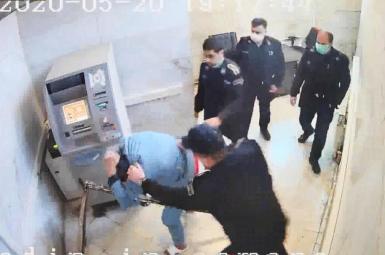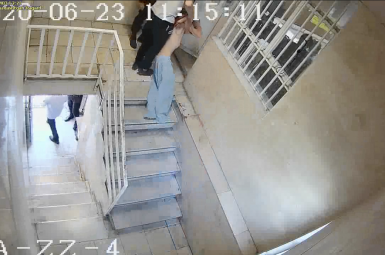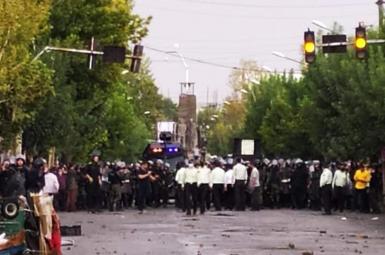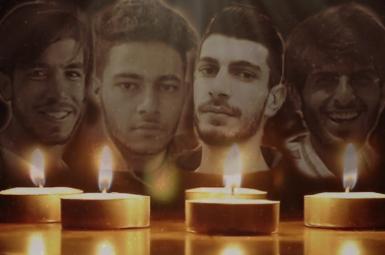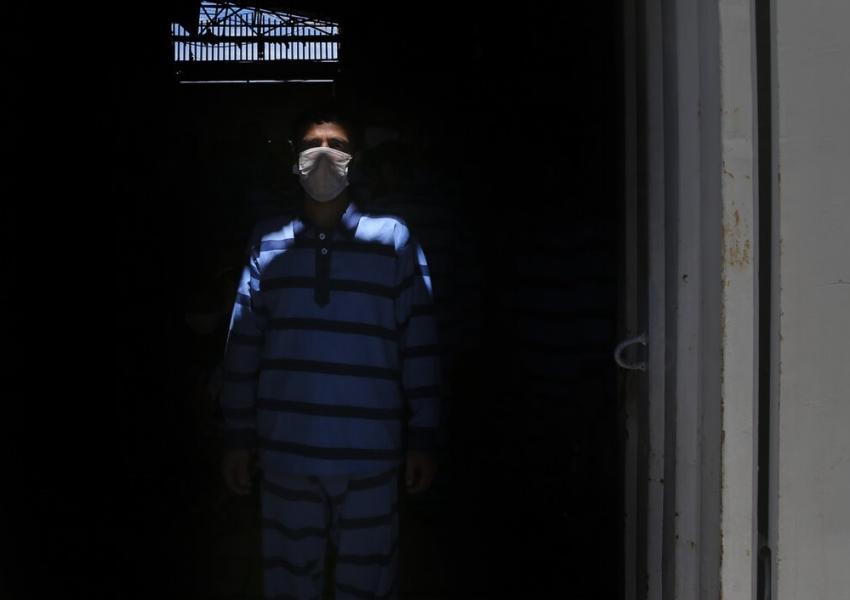
Amnesty Says Iran 'Increasingly' Used Executions As Political Weapon In 2020
An Amnesty International report highlighting the violation of human rights in Iran in 2020 says death penalty was increasingly used by the authorities in Iran as a weapon of political repression against protesters, dissidents and minority groups.
"Scores of protesters were charged with 'enmity against God' (moharebeh) and 'spreading corruption on earth' (efsad f’il arz), which carry the death penalty," the Amnesty International report said adding that several protesters were sentenced to death following unfair trials based on forced confessions after torture.
The IA noted that in December 2020 dissident journalist Ruhollah Zam was executed in connection with his anti-establishment social media news channel on Telegram, Amad News.
As part of the government's harassment of Iranian journalists working with foreign-based media, the Iranian authorities illegally banned some journalists' and their family members' access to their bank accounts and other assets.
The report added that victims included people under age 18 at the time of the crime. The report also added that a disproportionate number of those executed were members of Iran’s Kurdish and Baluchi minorities.
Quoting the Abdulrahman Boroumand Foundation, the AI report said that at least 160 individuals were sentenced to flogging in 2020. Meanwhile, Iran's Islamic Penal Code continued to provide for corporal judicial punishments amounting to torture, including flogging, blinding, amputation, crucifixion and stoning. According to the report, stoning remained a method of execution for those convicted of adultery.
The report highlighted the fact that during 2020, hundreds of Iranians including journalists, dissidents, artists, writers, human rights advocates, women's rights activists, as well as activist among workers, minority groups and environmentalists have been arrested and in some cases executed.
Some of those arrested were journalists and citizen journalists who reported the news about the coronavirus pandemic. "The authorities took measures to stop independent reporting on COVID-19 and silence criticism about their handling of the pandemic. The Ministry of Culture and Islamic Guidance ordered media and journalists to use only official sources and statistics in their reporting," said Amnesty International.
Meanwhile, according to the report, widespread and systematic torture and other ill-treatment of prisoners continued, especially during interrogation as Iran’s police, intelligence, security forces, and prison officials subjected detainees to prolonged solitary confinement, beatings, floggings, stress positions, forced administration of chemical substances and electric shocks. Furthermore, authorities also deliberately denied prisoners of conscience and other prisoners held for political reasons adequate health care.
The report also highlighted the violation of the rights of the Baha’i and other religious minorities in Iran.
The report said that during the year, Iran harshly suppressed freedom of expression and assembly and clamped down on organized gatherings. In January 2020, Iranian security forces used unlawful force, including firing pointed pellets from airguns, rubber bullets and tear gas, and using pepper spray, to disperse peaceful protesters demanding justice for the victims of a Ukrainian airliner shot down by missiles over Tehran. They also kicked, punched and beat protesters and carried out scores of arbitrary arrests, said the report.
Meanwhile the authorities denied inmates access to medical care during the COVID-19 pandemic. However, the Amnesty International report noted that "between February and May, the authorities temporarily released around 128,000 prisoners and pardoned another 10,000 in response to COVID-19."
